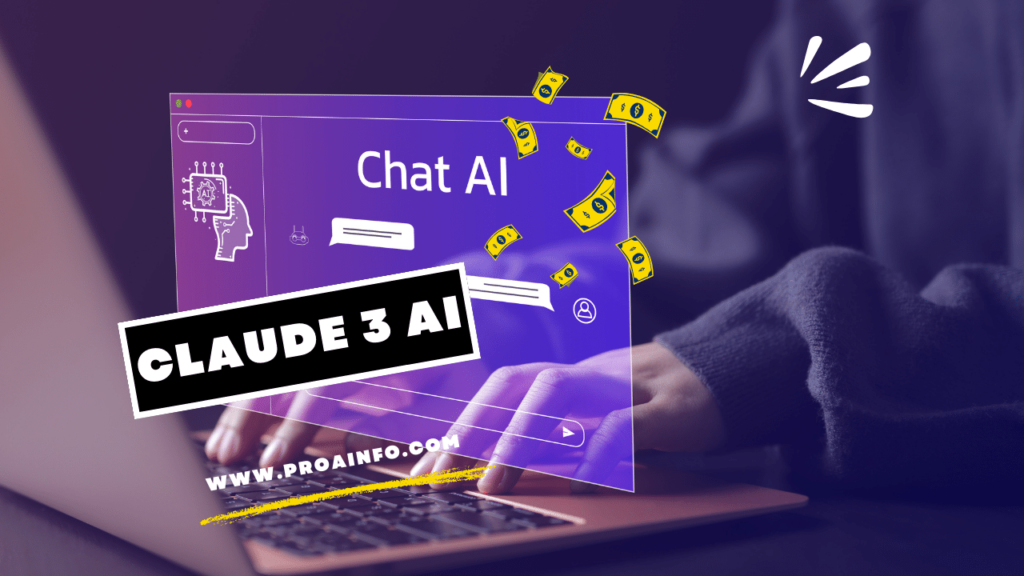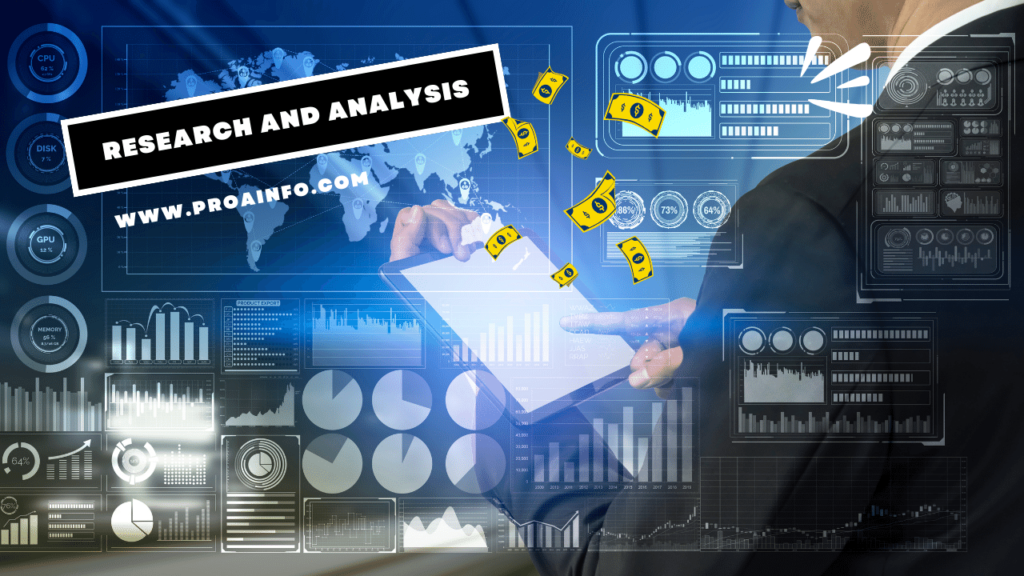Is Claude 3 AI Good? In the rapidly evolving landscape of artificial intelligence (AI), a new player has emerged, capturing the attention of tech enthusiasts and industry experts alike. Claude 3, the latest iteration of the AI system developed by Anthropic, has been making waves with its impressive capabilities and intriguing potential.
As AI continues to permeate various facets of our lives, the question on everyone’s mind is: Is Claude 3 AI truly good? This comprehensive article aims to delve into the intricacies of Claude, exploring its strengths, limitations, and implications for the future.
What is Claude 3 AI?

Before diving into an assessment of Claude 3’s capabilities, it’s essential to understand what this AI system is and what sets it apart from its predecessors and competitors. Developed by Anthropic, a research company dedicated to creating safe and ethical AI systems, Claude 3 is a large language model trained on vast amounts of data. Unlike traditional rule-based AI systems, Claude 3 leverages advanced machine learning techniques, specifically natural language processing (NLP), to comprehend and generate human-like text.
One of the key distinctions of Claude 3 is its emphasis on value alignment, a concept that seeks to ensure AI systems operate in accordance with human values and ethical principles. Anthropic has implemented various techniques, such as constitutional AI and debate, to instill Claude with a strong ethical foundation, aiming to create an AI assistant that is not only intelligent but also trustworthy and aligned with human interests.
Capabilities and Applications of Claude 3
Language Comprehension and Generation

At its core, Claude 3 excels in natural language processing tasks, including language comprehension and generation. Its ability to understand and respond to human language in a coherent and contextually appropriate manner is one of its most impressive features. Whether it’s answering questions, engaging in conversations, or providing summaries and analyses, Claude demonstrates a remarkable grasp of language nuances and semantics.
Writing and Content Creation
Claude 3’s language generation capabilities extend beyond mere conversation, making it a powerful tool for writing and content creation. From drafting articles and essays to composing creative fiction and poetry, Claude can assist writers and content creators in various domains. Its ability to understand context, generate coherent narratives, and maintain consistent tone and style opens up new possibilities for collaborative writing and ideation.
Research and Analysis

AI’s potential in research and analysis is undeniable, and Claude 3 is no exception. With its vast knowledge base and analytical capabilities, Claude 3 can assist researchers, analysts, and professionals in various fields. From literature reviews and data analysis to hypothesis generation and identification of research gaps, Claude 3 can streamline research processes and provide valuable insights.
Task Automation and Productivity
Beyond its cognitive capabilities, Claude can also contribute to task automation and productivity enhancement. By integrating with various applications and platforms, Claude can assist with scheduling, task management, and workflow optimization. Its natural language interface allows users to issue commands and instructions in a conversational manner, making it a versatile digital assistant for both personal and professional use.
Ethical Considerations and Limitations
While Claude 3 boasts impressive capabilities, it’s crucial to address the ethical considerations and limitations that come with such a powerful AI system.
Bias and Fairness
Like any AI system trained on real-world data, Claude may inadvertently inherit biases present in its training data. Anthropic has implemented techniques to mitigate bias, but ensuring complete fairness and impartiality remains an ongoing challenge. Recognizing and addressing potential biases in Claude 3’s outputs is an area that requires continuous vigilance and improvement.
Privacy and Security
As Claude processes and generates text based on user inputs, concerns around privacy and data security arise. Anthropic has implemented robust security measures to protect user data, but the potential risks associated with AI systems processing sensitive information cannot be overlooked. Responsible use and appropriate safeguards are essential when dealing with sensitive or personal information.
Transparency and Explainability
While Claude is designed to be value-aligned and ethical, its decision-making processes and reasoning may not always be transparent or easily explainable. As a complex neural network, Claude 3’s inner workings can be opaque, making it difficult to fully understand how it arrives at certain outputs. Enhancing transparency and explainability is crucial for building trust and ensuring accountability.
Impact on Employment and Society
The rise of AI systems like Claude 3 has sparked debates about their potential impact on employment and society. While these AI assistants can augment human capabilities and increase productivity, there are concerns about job displacement and the need for reskilling and workforce adaptation. Careful consideration and proactive measures are necessary to ensure a smooth transition and mitigate potential negative consequences.
The Future of Claude 3 and AI
Looking ahead, the development and adoption of AI systems like Claude are poised to shape various aspects of our lives, presenting both opportunities and challenges.
Continuous Improvement and Evolution
As AI research and development continue to advance, Claude 3 and other AI systems will likely undergo continuous improvement and evolution. With each iteration, these systems may become more capable, accurate, and reliable, potentially expanding their applications and impact.
Integration into Various Industries
The versatility of Claude 3’s capabilities opens up possibilities for integration into various industries, such as healthcare, finance, education, and creative fields. By collaborating with domain experts and adapting to specific requirements, Claude and similar AI systems could revolutionize how we approach problem-solving, decision-making, and knowledge dissemination.
Ethical AI Governance and Regulation

As AI systems become more prevalent and influential, the need for robust ethical governance and regulation becomes paramount. Establishing clear guidelines, standards, and oversight mechanisms will be crucial to ensuring the responsible development and deployment of AI, safeguarding against potential misuse or unintended consequences.
Human-AI Collaboration and Augmentation
Rather than viewing AI as a replacement for human intelligence, the future may lie in effective human-AI collaboration and augmentation. By leveraging the strengths of both humans and AI systems like Claude 3, we can unlock new levels of productivity, creativity, and problem-solving capabilities, pushing the boundaries of what is possible.
Conclusion
In conclusion, Claude AI is a remarkable achievement in the field of artificial intelligence, showcasing impressive capabilities in natural language processing, writing, analysis, and task automation. However, it is crucial to approach this technology with a balanced perspective, acknowledging both its potential and limitations.
While Claude has demonstrated value alignment and ethical considerations in its development, ongoing vigilance is necessary to address issues of bias, privacy, and transparency. Additionally, the societal impact of AI systems like Claude requires careful navigation, ensuring a smooth transition and minimizing potential negative consequences.
Ultimately, the success of Claude and other AI systems will depend on our ability to harness their capabilities responsibly and ethically. By fostering collaboration between humans and AI, establishing robust governance frameworks, and continuously improving and evolving these technologies, we can unlock a future where AI augments and enhances human potential, rather than replacing or diminishing it.
As we navigate this exciting and challenging era of AI, it is essential to approach Claude and other AI systems with a critical yet open mind, embracing their potential while remaining vigilant to their limitations and ethical implications. Only through a balanced and thoughtful approach can we truly maximize the benefits of AI while mitigating its risks, paving the way for a future where technology and humanity coexist in harmony, propelling us toward new frontiers of innovation and progress.
FAQs
What is Claude 3 AI?
Claude 3 is an advanced artificial intelligence system developed by Anthropic, a research company focused on creating safe and ethical AI. It is a large language model trained on vast amounts of data, capable of natural language processing, generation, and understanding.
What are the main capabilities of Claude 3?
Claude 3 excels in various natural language processing tasks, including language comprehension, text generation, writing and content creation, research and analysis, and task automation. It can engage in human-like conversations, answer questions, draft articles and stories, assist in research, and help with productivity tasks.
How does Claude 3 differ from other AI assistants like ChatGPT or Alexa?
One key distinction of Claude 3 is its emphasis on value alignment and ethical AI principles. Anthropic has implemented techniques such as constitutional AI and debate to instill Claude 3 with a strong ethical foundation, aiming to create an AI assistant that is not only intelligent but also trustworthy and aligned with human values.
Is Claude 3 biased or unfair?
Like any AI system trained on real-world data, Claude 3 may inadvertently inherit biases present in its training data. Anthropic has implemented techniques to mitigate bias, but ensuring complete fairness and impartiality remains an ongoing challenge. Recognizing and addressing potential biases in Claude 3’s outputs is an area that requires continuous vigilance and improvement.
How does Claude 3 ensure privacy and security?
Anthropic has implemented robust security measures to protect user data when interacting with Claude 3. However, the potential risks associated with AI systems processing sensitive information cannot be overlooked. Responsible use and appropriate safeguards are essential when dealing with sensitive or personal information.
Is Claude 3’s decision-making process transparent and explainable?
While Claude 3 is designed to be value-aligned and ethical, its decision-making processes and reasoning may not always be transparent or easily explainable. As a complex neural network, Claude 3’s inner workings can be opaque, making it difficult to fully understand how it arrives at certain outputs.
What is the potential impact of Claude 3 on employment and society?
The rise of AI systems like Claude 3 has sparked debates about their potential impact on employment and society. While these AI assistants can augment human capabilities and increase productivity, there are concerns about job displacement and the need for reskilling and workforce adaptation.
How will Claude 3 and other AI systems evolve in the future?
As AI research and development continue to advance, Claude 3 and other AI systems will likely undergo continuous improvement and evolution, becoming more capable, accurate, and reliable. Their applications and impact may expand across various industries, revolutionizing how we approach problem-solving, decision-making, and knowledge dissemination.
What are the ethical considerations surrounding the development and use of Claude 3?
The development and deployment of AI systems like Claude 3 raise important ethical considerations, such as bias and fairness, privacy and security, transparency and explainability, and the potential impact on employment and society. Establishing clear ethical guidelines, governance frameworks, and oversight mechanisms will be crucial to ensuring the responsible development and use of AI.
How can humans and Claude 3 collaborate effectively?
Rather than viewing AI as a replacement for human intelligence, the future may lie in effective human-AI collaboration and augmentation. By leveraging the strengths of both humans and AI systems like Claude 3, we can unlock new levels of productivity, creativity, and problem-solving capabilities, pushing the boundaries of what is possible.







